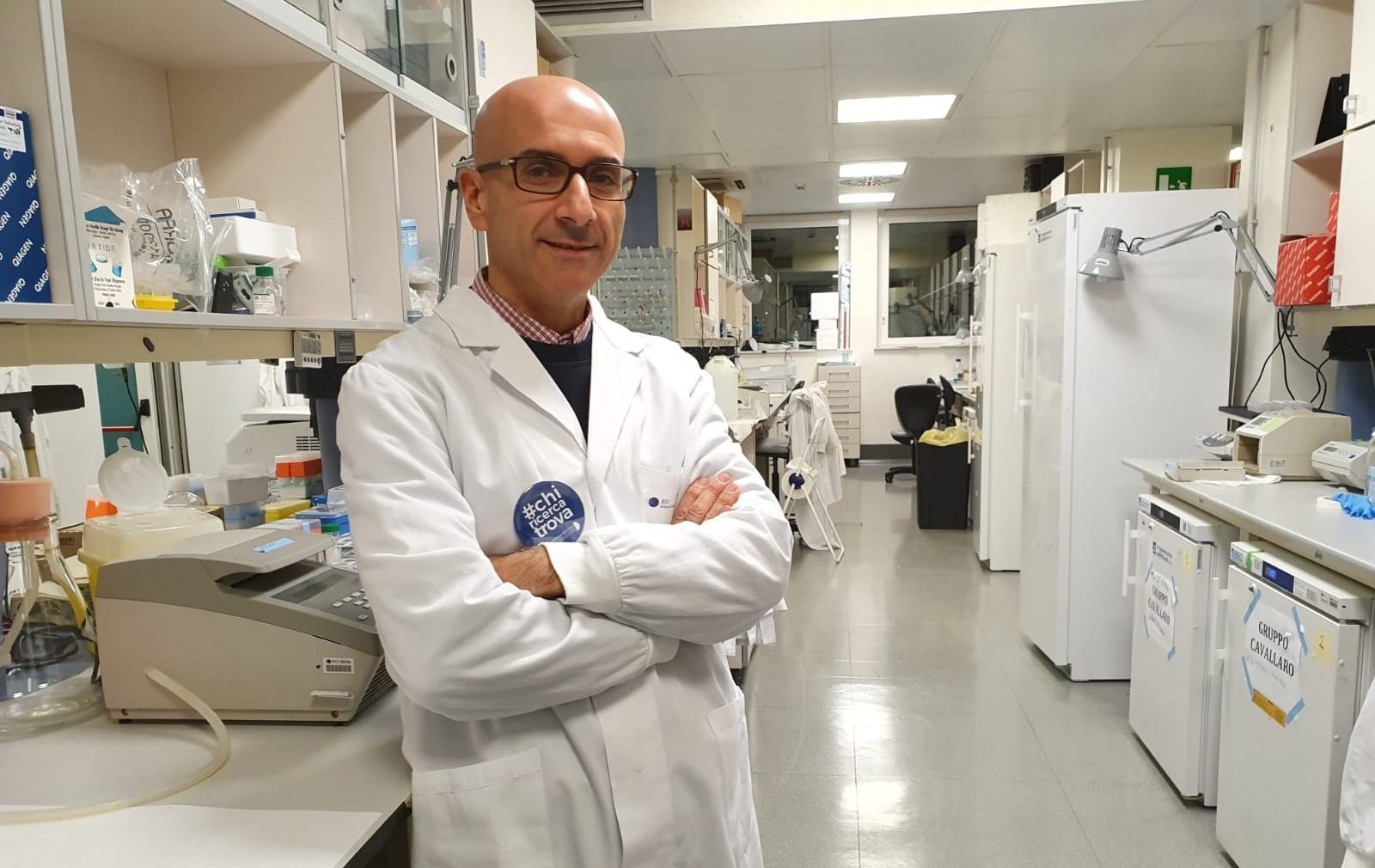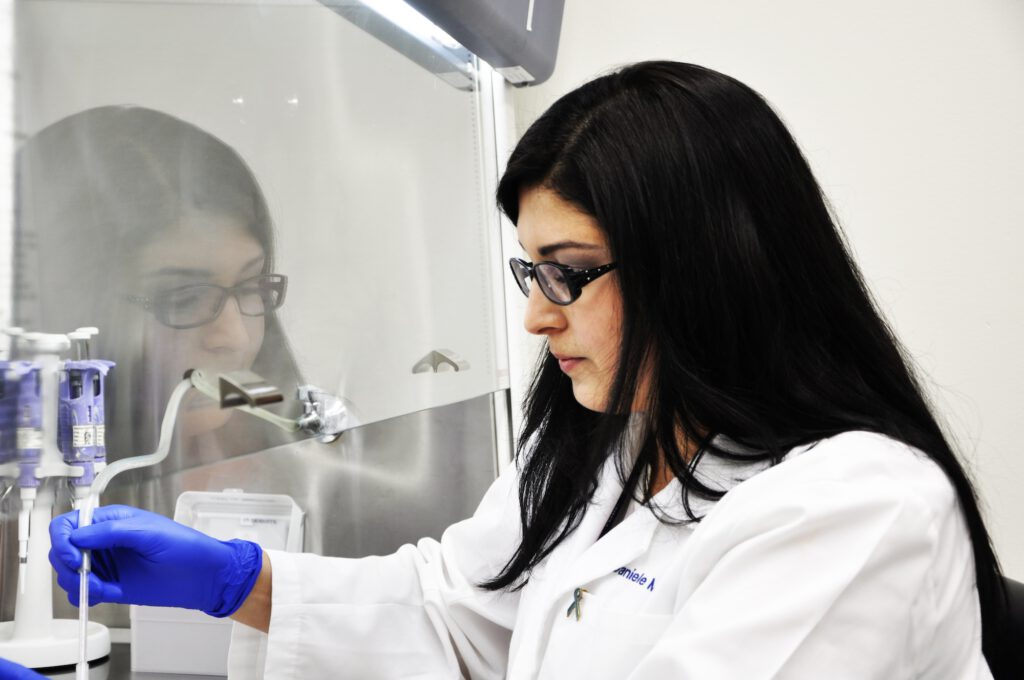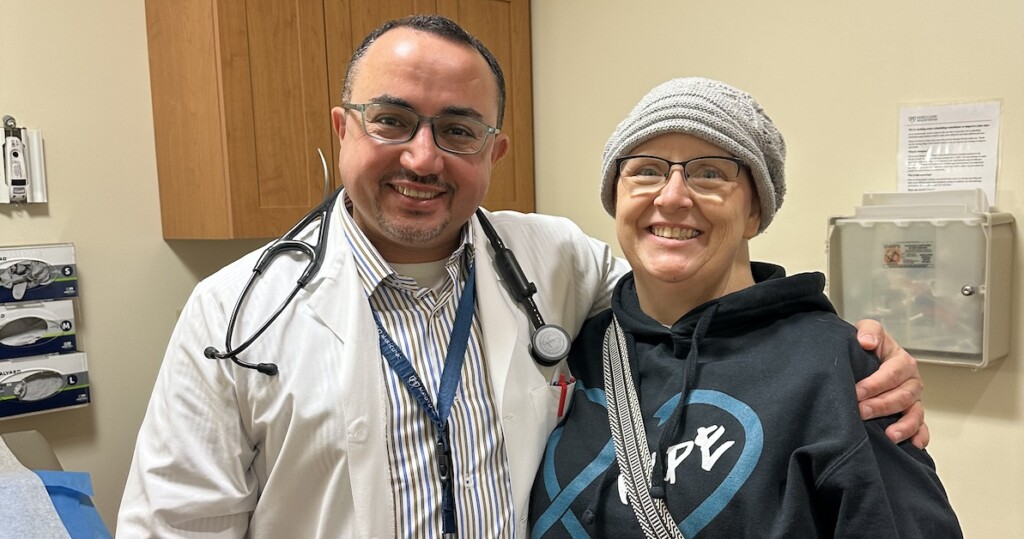
Gynecologic Cancers
Recognizing the interconnectedness of ovarian and all gynecologic cancers, OCRA expanded its scope in order to accelerate research and broaden our impact on patients’ lives.
Uterine sarcoma is a rare type of uterine cancer that develops in the muscle and supporting tissues of the uterus.
Although endometrial cancer and uterine sarcoma are both uterine cancers, they arise from different types of cells, making them distinct in terms of behavior, treatment, and prognosis.
Cancers arising from epithelial tissues are called carcinomas. Endometrial cancer arises from epithelial cells that form the inner lining of the uterus (the endometrium). More than 95% of uterine cancers are endometrial carcinomas. When people talk about uterine cancer, they are usually referring to endometrial cancer.
Cancers arising from supporting tissue, including muscle, fat, bone, or fibrous tissue, are called sarcomas. Uterine sarcomas develop in the muscle and supporting tissues of the wall of the uterus (the myometrium). Uterine sarcomas are rare.

OCRA’s online Clinical Trial Navigator is an easy-to-use tool that helps you find clinical trials near you for uterine sarcoma. Search by cancer type, treatment history, location, and more. If you prefer, you can also speak with someone over the phone.
There is no screening test for uterine sarcoma, unfortunately. The Pap test, a reliable screening tool for cervical cancers, does not screen for uterine sarcoma.
Symptoms of uterine sarcoma can include:
These symptoms can be associated with other conditions aside from uterine sarcoma, such as uterine fibroids, precancerous cells in the endometrium, or endometrial sarcoma. If you experience these symptoms, however, see a doctor as soon as possible and talk to them about uterine sarcoma and endometrial cancer.
Risk factors for uterine sarcoma include:
There are several different types of uterine sarcoma, which are categorized according to the type of cell from which they originate. Types of uterine sarcoma include:
If a doctor suspects uterine sarcoma, they may recommend further testing and a biopsy. Tests to investigate and confirm a uterine sarcoma diagnosis can include:
Uterine sarcoma stages range from stage 1 (I) to stage 4 (IV). The stage refers to how far the cancer has spread. In general, a lower number stage means the cancer has not spread as far, where a higher number stage indicates significant spread. View the American Cancer Society’s detailed information on uterine sarcoma stages.
Frontline treatment of uterine sarcoma typically consists of surgery to remove the cancer, followed by radiation, chemotherapy, or hormone therapy to reduce the likelihood of the cancer returning. If a sarcoma is suspected based on imaging, then surgery should be performed by a gynecologic oncologist.
There are a few different types of surgery that may be performed to remove uterine sarcoma and any nearby spread:
In addition to (or in place of) surgery to remove uterine sarcoma, treatment may include:
The type of treatment recommended will be based on cancer type and stage, as well as the patient’s overall health, circumstances, and goals of care.
If cancer comes back, it is called a recurrence. If uterine sarcoma comes back within the pelvis, it is called a local recurrence. A recurrence in an area far from the original cancer site, such as the lungs or liver, is called a distant recurrence. Recurrent uterine carcinoma is typically treated the same way as stage 4 (IV) cancer. If cancer recurs, it is important for patients to discuss goals of treatment and care with their medical team. Some patients who experience a uterine carcinoma recurrence may wish to participate in a cancer clinical trial.
Uterine sarcomas are a rare gynecologic cancer and a rare cancer in general, making up only 2% to 5% of all uterine cancers. Uterine sarcomas most typically affect those over age 40. The average age of someone diagnosed with uterine sarcoma is about 60 years old.

Recognizing the interconnectedness of ovarian and all gynecologic cancers, OCRA expanded its scope in order to accelerate research and broaden our impact on patients’ lives.

Explore new treatments for ovarian and gynecologic cancers.

Locate gynecologic oncologists, specialists, and treatment centers in your area.
Get email updates about research news, action alerts, and ways to join the fight.